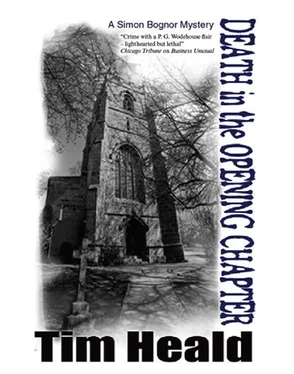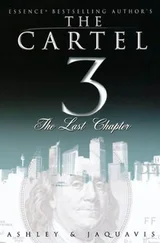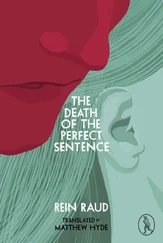Tim Heald - Death in the opening chapter
Здесь есть возможность читать онлайн «Tim Heald - Death in the opening chapter» весь текст электронной книги совершенно бесплатно (целиком полную версию без сокращений). В некоторых случаях можно слушать аудио, скачать через торрент в формате fb2 и присутствует краткое содержание. Жанр: Криминальный детектив, на английском языке. Описание произведения, (предисловие) а так же отзывы посетителей доступны на портале библиотеки ЛибКат.
- Название:Death in the opening chapter
- Автор:
- Жанр:
- Год:неизвестен
- ISBN:нет данных
- Рейтинг книги:5 / 5. Голосов: 1
-
Избранное:Добавить в избранное
- Отзывы:
-
Ваша оценка:
- 100
- 1
- 2
- 3
- 4
- 5
Death in the opening chapter: краткое содержание, описание и аннотация
Предлагаем к чтению аннотацию, описание, краткое содержание или предисловие (зависит от того, что написал сам автор книги «Death in the opening chapter»). Если вы не нашли необходимую информацию о книге — напишите в комментариях, мы постараемся отыскать её.
Death in the opening chapter — читать онлайн бесплатно полную книгу (весь текст) целиком
Ниже представлен текст книги, разбитый по страницам. Система сохранения места последней прочитанной страницы, позволяет с удобством читать онлайн бесплатно книгу «Death in the opening chapter», без необходимости каждый раз заново искать на чём Вы остановились. Поставьте закладку, и сможете в любой момент перейти на страницу, на которой закончили чтение.
Интервал:
Закладка:
‘You?’ This was daring, intrusive, OTT. He knew this, and saw her mood change immediately. She pinkened.
‘He used to be certain about me, much more so than I was about him. I loved him, but I could always see the flaws. The dithering, for instance. He never mentioned my flaws. He always said I was beautiful. He used to believe that I was the best thing that ever happened to him. He accepted the fact that we couldn’t have children. But then, at the same time he started to doubt his vocation, he began to doubt me, and to question the nature of love, the sanctity of marriage and,’ she became even pinker, ‘well, everything.’
‘And sex?’ Bognor really was pushing his luck now. He knew this, but in for a penny in for a pound, what the hell? The length of her silence and the almost impossible reddening of her cheeks made him think he had, indeed, gone too far, but, to his surprise, she answered, and even though the response was delayed, it was, as far as he could judge, honest. It was certainly explicit.
‘We used to have quite a lot of sex,’ she said. ‘I don’t know if we were any good, because we’d only ever known each other in a, well, in a carnal sense. But we suited each other and we enjoyed it. It was meaningful, of course, but fun too. We used to laugh quite a lot in bed. We had a lot of innocent fun. Nothing untoward, I don’t think, but tremendous fun.’ She grew wistful again. ‘Then that stopped. He said it was “wrong”, said it was a sin. So, we stopped. For the last few months, we even had separate bedrooms. We never even cuddled. I couldn’t help wondering if there was someone else, but I don’t think so. It was just him. Or rather not him. He wasn’t himself.’
Bognor, inevitably perhaps, thought of himself and Monica. Childless. Faithful. Laughter in bed. Surprisingly sexy. No one else would have suspected. They would have thought it mildly perverse, but then sex was like that. He remembered the sex education talk from his headmaster when he was twelve, and how his best friend had whispered to him incredulously just after, ‘Do you realize that he and Mrs Fothergill have actually done that?’ It seemed grotesque, quite beyond imagining, but sex was like that. However enjoyable and entertaining it might be for you and your partner, it was unimaginable and mildly disgusting in others. The idea of the late Reverend Sebastian and Dorcas even in a missionary position was either laughable or nauseating, depending on one’s viewpoint. At any rate, it was beyond Bognor’s ken, just as was his own coupling with Monica.
‘So, your husband suddenly developed misgivings about sex and about God,’ said Bognor. ‘Do you think this sudden access of doubt would have been enough to drive him to take his own life?’
Dorcas seemed to give the idea some thought.
‘I wouldn’t have said Sebastian was into suicide,’ she said. ‘You have to be certain of something to kill yourself, and I wouldn’t have said Sebby was like that. On the other hand, I would never have believed he could have had second thoughts about God… or sex.’
‘So, whatever else he may have thought about things, he remained pretty certain about his doubts.’
Simon was rather pleased with this, which while not sufficiently polished to qualify as an aphorism, contained enough unexpectedness to be worth the work. The idea of certainty about doubt was appealing, as well as paradoxical.
‘You could say that,’ she conceded, ‘and in a way, it simply made him a more consistent character. He was in a quandary about absolutely everything, which was not originally the case. It could have driven him to killing himself, though I’d be surprised. On the other hand, his life was full of surprises, so why not his death?’
‘Seems a slightly melodramatic way of doing it,’ said Bognor. ‘He could have taken an overdose, or slit his wrists in the bath.’
‘Perhaps he wanted people to notice,’ she said. ‘Nobody paid much attention to him while he was alive, so why not do a celebrity-style death. It would surprise everyone and possibly draw attention to whatever he wanted people to be drawn to.’
‘Which was?’ No one had found a note. There was no indication of what he was planning to preach from the pulpit.
‘Ebenezer took away his notes for the sermon,’ she said as if reading his mind. ‘He said it might be helpful and that, in any case, no one else would understand. If they claimed to, they would be guilty of getting everything wrong.’
‘How did the bishop get hold of the notes?’
‘Sebastian…’ and then she went pink and checked herself again, ‘gave them to him,’ she said, after what seemed like another long moment of thought. ‘It seemed only right. They were God’s business, and it seemed only proper that they should be shared by his servants and not by enemies.’
Bognor made a mental note to ask about the state of Dorcas’ own beliefs.
‘I hadn’t realized that the bishop was on the scene so fast,’ he said.
‘I didn’t say he was,’ she said, flustered.
‘That’s not what I said. Or questioned,’ said Bognor.
He supposed he had better have another, perhaps more formal, word with the bishop.
‘Does he still have your husband’s notes for the sermon?’ he asked.
Another silence, and then she nodded. ‘I can’t think he hasn’t,’ she said, ‘but you’d better ask. I simply don’t know.’
‘I will,’ he said. And he would.
TWENTY-ONE
Monica and the Fludds had been listening to a talk by Martin Allgood. Bognor was working while they played. This was irritating because he had been looking forward to hearing authors speak. On the other hand, it gave him a moral upper hand. That was the theory. Unfortunately, authors, often the least likely, had a habit of getting in the way and saying stuff that was more germane to the puzzle than routine enquiries. That was the reality.
Thus, Allgood.
‘Did you know that the Reverend Sebastian had written a book?’ asked Sir Branwell. ‘Dark horse, Sebby. Provisional title: The Vicar’s Wife. Taken, I rather fancy, by Trollope minima.’
‘Wrong on a number of counts,’ said Monica, predictably and crisply. ‘Joanna Trollope’s book was The Rector’s Wife, and was inspired by her clerical upbringing in the Cotswolds. And Allgood didn’t say Sebastian had written a book. He was being hypothetical.’
‘Oh, come on, Monica.’ Bognor recognized Branwell’s combine-harvester mood, devouring all before him and scattering vegetation and wildlife before him, without serious discrimination. When he took on this guise, he was unstoppable and destroyed everything in his path. ‘Little Allgood doesn’t do hypothetical. His oeuvre is one long roman-a-clef, a hymn of self-congratulation.’
‘That’s unfair,’ said Monica, ‘and not true, either.’ But Sir Branwell was unstoppable. Bognor tried silently warning his wife, flashing his eyes and kicking her under the table. Nothing worked. She stood like an obstinate stook in his path, grass about to be cast to the wind and rendered into featureless chaff. Except that it was unwise to mess with Monica. She was just the sort of rogue blade who would clog otherwise irresistible machinery.
‘Don’t be ridiculous,’ said Sir Branwell, with all the braggadocio which had once earned him a congratulatory fourth. ‘Little Allgood’s never written an original word in his life. It’s all faction at best, plagiarism at worst. Everything comes from somewhere else. He just takes real life and makes it boring.’
‘Please explain,’ said Bognor to all three. ‘I am not understanding.’
Camilla Fludd, who had remained silent and seemed to have less of an axe to grind, spoke.
‘Allgood spent his entire talk saying what it was like having a novel turned down.’
Читать дальшеИнтервал:
Закладка:
Похожие книги на «Death in the opening chapter»
Представляем Вашему вниманию похожие книги на «Death in the opening chapter» списком для выбора. Мы отобрали схожую по названию и смыслу литературу в надежде предоставить читателям больше вариантов отыскать новые, интересные, ещё непрочитанные произведения.
Обсуждение, отзывы о книге «Death in the opening chapter» и просто собственные мнения читателей. Оставьте ваши комментарии, напишите, что Вы думаете о произведении, его смысле или главных героях. Укажите что конкретно понравилось, а что нет, и почему Вы так считаете.












